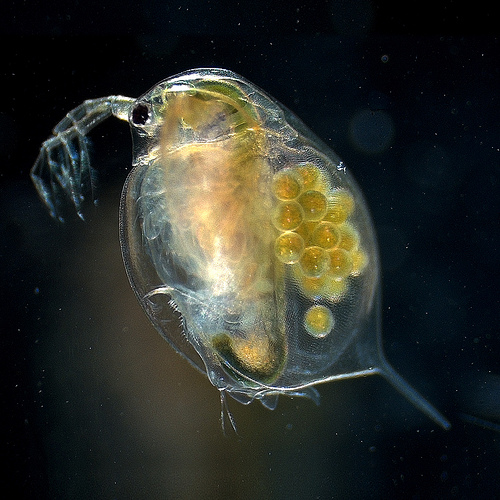The International Space Station (ISS) will receive a shipment of water fleas in the upcoming weeks, as part of a research project to test the effects of zero gravity on these resilient insects. A group of University of Birmingham (UK) students came up with this bold plan as part of an educational science project. The International Space School Education Trust and Mission Discovery, which orchestrated the science project, selected it as the winner, granting students the right to ship off water fleas to the ISS.
So, what’s the goal in shipping water fleas into space? Researchers want to learn more about the impact of zero gravity on these insects. Zero gravity affects animals and living organisms in a multitude of different ways, from changing blood flow to subduing muscle growth. But how exactly does it impact water-borne insects like the water flea (Daphnia)? This is a question astronauts on board the ISS hope to answer once they receive the shipment of water fleas.
“Little is known of Daphnia in zero gravity. Their swimming behaviour in space can teach us how they experience gravity on Earth and their reproduction is a good indicator of stress. By understanding the health of water fleas in orbit, we can assess their use as models for human health under the same conditions, and their use for setting up simple ecosystems that can survive long space travels,” said Dr Kay Van Damme, professor at the University of Birmingham’s School of Biosciences.
There are a few hurdles standing in the way of the plan, however, one of which is the water flea’s natural habitat. In order to survive in space, researchers presume that Daphnia will need both water and algae — two components found in its natural habitat here on Earth. So before they can ship the water fleas off to the ISS, they must determine exactly how much water and algae these creatures will need; otherwise, there’s a risk of the water fleas dying once they reach orbit.
Another potential hurdle researchers must overcome is the water flea’s survivability (or lack thereof) in the cold, low-humid conditions of outer space. Fleas prefer environments that are warm and humid, which is the exact opposite of the ISS. Whether or not water fleas will be able to survive in outer space remains to be seen.
You can learn more about the University of Birmingham’s space-bound flea project by visiting the school’s official website at http://www.birmingham.ac.uk/news/latest/2014/12/22-Dec-14-brummie-water-fleas-prepared-for-their-trip-to-space.aspx.

